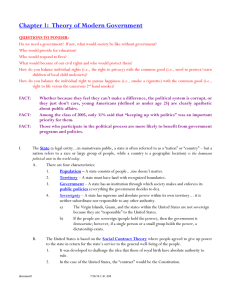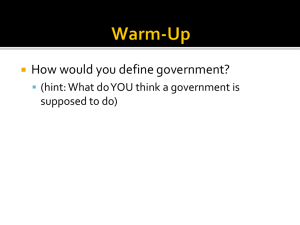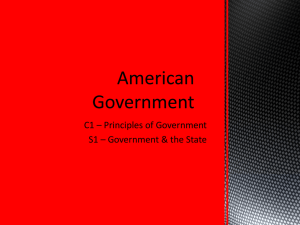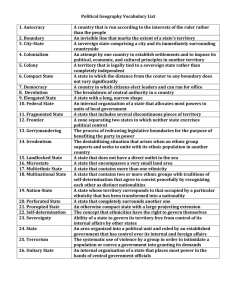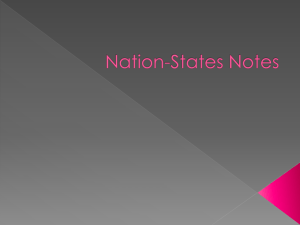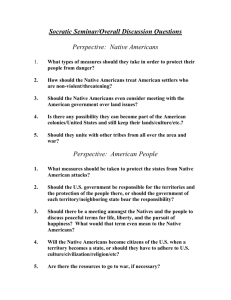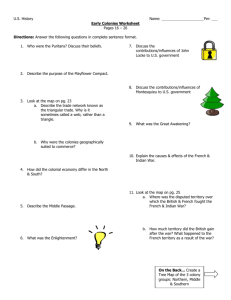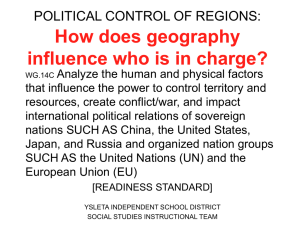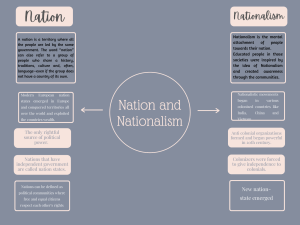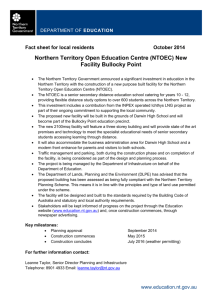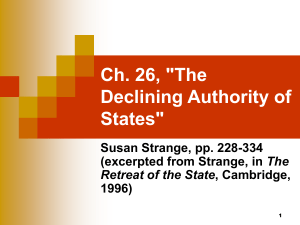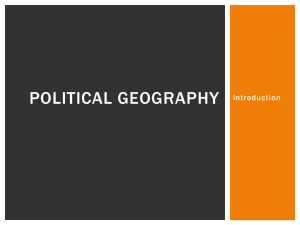Political Geography Vocabulary List
advertisement
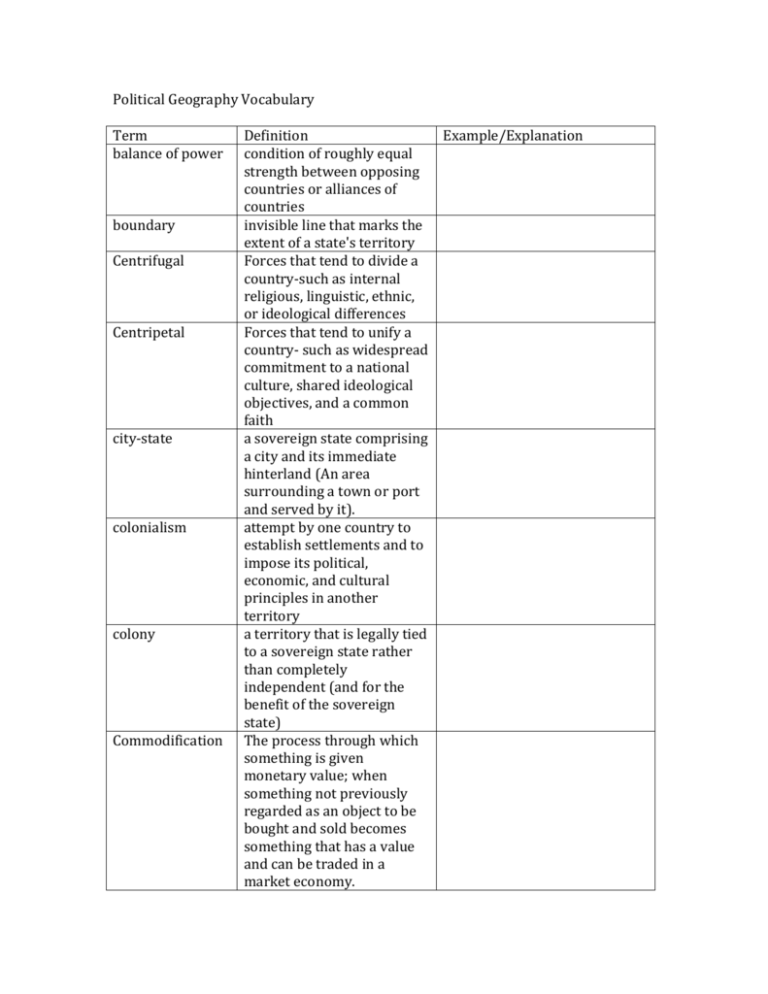
Political Geography Vocabulary Term balance of power boundary Centrifugal Centripetal city-state colonialism colony Commodification Definition Example/Explanation condition of roughly equal strength between opposing countries or alliances of countries invisible line that marks the extent of a state's territory Forces that tend to divide a country-such as internal religious, linguistic, ethnic, or ideological differences Forces that tend to unify a country- such as widespread commitment to a national culture, shared ideological objectives, and a common faith a sovereign state comprising a city and its immediate hinterland (An area surrounding a town or port and served by it). attempt by one country to establish settlements and to impose its political, economic, and cultural principles in another territory a territory that is legally tied to a sovereign state rather than completely independent (and for the benefit of the sovereign state) The process through which something is given monetary value; when something not previously regarded as an object to be bought and sold becomes something that has a value and can be traded in a market economy. compact state Core devolution elongated state federal state fragmented state frontier gerrymandering Heartland Theory a state in which the distance from the center to any boundary does not vary significantly Processes that incorporate higher levels of education, higher salaries, and more technology; generate less wealth than core processes in the world-economy The process by whereby regions within a state demand and gain political strength and growing autonomy at the expense of the central government a state with a long, narrow shape an internal organization of a state that allocates most powers to units of local government a state that includes several discontinuous pieces of territory a zone separating two states in which neither state exercises political control process of redrawing legislative boundaries for the purpose of benefiting the party in power Theory proposed by Halford Mackinder in the early 20th century that any political power based int the heart of Eurasia could gain sufficent strength to eventually dominate the world; Mackinder further proposed that since Eastern Europe controlled access the Eurasian interior, its ruler would command the vast "heartland" to the east imperialism landlocked state microstate Peace of Westphalia perforated state Periphery prorupted state Reapportionment sovereignty state Supranational control of territory already occupied and organized by an indigenous society a state that does not have a direct outlet to the sea a state that encompasses a very small land area Peace negotiated in 1648 to end the Thirty Years' War, Europe's most destructive internal struggle over religion; contained new language recognizing statehood and nationhood, clearly defined borders, and guarantees of security a state that completely surrounds another one Process that incorporates lower levels of education, lower salaries, and less technology; and generate less wealth than core processes in the worldeconomy. an otherwise compact state with a large projecting extension Process by which representative districts are switched according to population shifts, so that each district encompasses approximately the same number of people ability of a state to govern its territory free from control of its internal affairs by other states an area organized into a political unit and ruled by an established government with control over its internal and foreign affairs A venture involving three or Organization Territorial Integrity Territorial Representation Territoriality Unilateralism unitary state more nation-states involving formal political, economic, and/or cultural cooperation to promote shared objectives. The United Nations, the European Union, and NATO are examples The right of a state to defend sovereign territory against inscursion from other states system wherein each representative is elected from a territorially defined district (like federal and state representatives) a state's sense of property and attachment toward its territory, as expressed in its determination to keep it inviolable and strongly defended. World order in which one state is in a position of dominance with allies following rather than joining the pollitical descisionmaking process an internal organization of a state that places most power in the hands of central government officials
